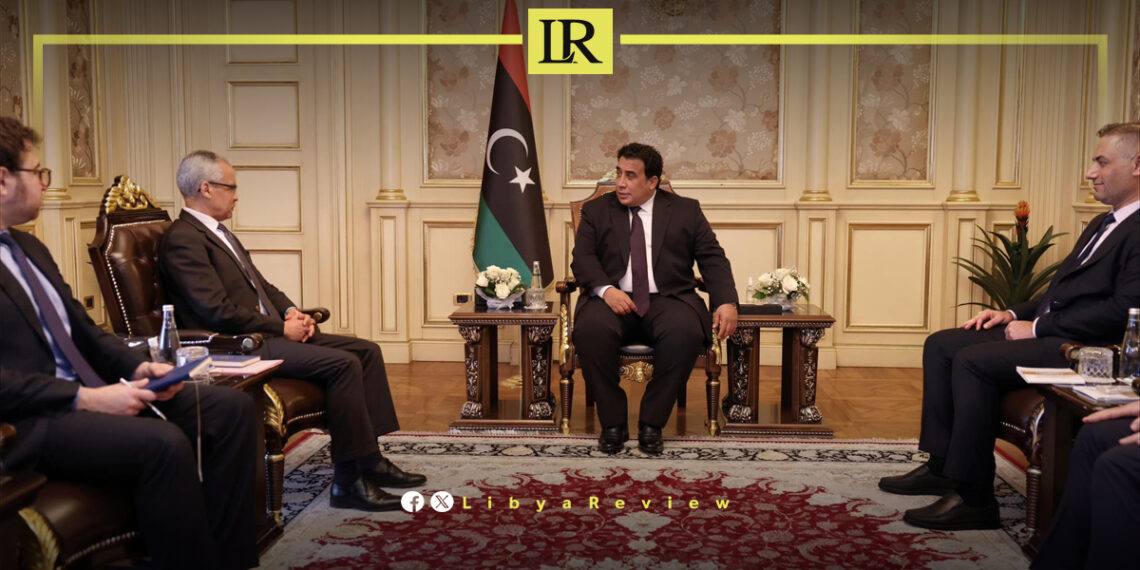On Sunday, French President Emmanuel Macron invited Libya’s Presidential Council Chairman, Mohamed Al-Mnifi, to attend a high-level summit in Paris in June 2025.
The invitation was delivered by French Ambassador to Libya, Mostafa Mihraje during a meeting at the Presidential Council headquarters in Tripoli on Sunday.
During the discussions, Al-Mnifi and Mihraje reviewed Libya’s political and security situation, including ongoing UN-led efforts to advance the political process and push for national elections. The invitation highlights France’s continued involvement in Libya’s political transition, reinforcing its role as a key international player in the country’s future.
The meeting also comes as Al-Mnifi held talks with top international officials, including Russia’s Ambassador to Libya, Aydar Aganin, British Deputy Chief of Defense Staff, Harvey Smith, and UK Ambassador to Libya, Martin Longden. These engagements reflect Libya’s active diplomatic outreach amid efforts to resolve its long-standing political crisis.
France has long maintained a strategic interest in Libya, particularly in security cooperation, counterterrorism, and economic partnerships in the oil sector. Since Muammar Gaddafi’s fall in 2011, France has been a key European actor in Libya’s political negotiations, frequently hosting international summits to push for elections and national unity.
Despite France’s diplomatic engagement, its involvement in Libya has faced criticism, particularly over its ambiguous support for eastern-based forces led by Khalifa Haftar while also backing diplomatic efforts with the Tripoli-based Government of National Unity (GNU). This complex position has raised questions about France’s true objectives in Libya’s future governance.
The Paris Summit in June 2025 could serve as another attempt by Macron to facilitate a breakthrough in Libya’s political deadlock. However, with previous international efforts failing to secure an electoral roadmap, the effectiveness of this summit remains uncertain.
As Libya continues to struggle with political division, delayed elections, and ongoing foreign influence, its relationship with France and other international partners will be critical in shaping its future.
The Paris Summit provides an opportunity for Libya’s leadership to strengthen diplomatic alliances and push for clear commitments toward national elections, but whether it will lead to concrete progress remains to be seen.


